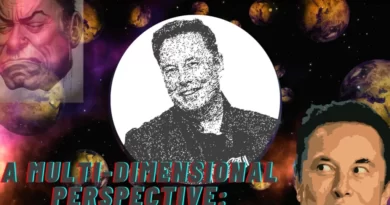BIG Tech Layoffs: The Future of IT Sector jobs in the age of AI and Automation
Artificial Intelligence (AI) is a rapidly growing field that has the potential to revolutionize many industries, including the tech sector. As AI technology advances, it can automate tasks and processes that were previously done by humans, making them more efficient and cost-effective. However, this increased efficiency can also lead to job displacement and layoffs.
Big tech companies, such as Google, Amazon, and Facebook, are among the leaders in AI research and development. As they continue to invest in AI technology, they may find that they need fewer employees in certain roles.
For example, a company may use AI to automate customer service tasks, reducing the need for human customer service representatives. Similarly, a company may use AI to analyze data and make predictions, reducing the need for human data analysts.
However, it is important to note that AI and automation can also create new jobs and opportunities.
For example, as AI systems become more advanced, there will be a growing need for engineers and scientists to develop and maintain these systems.
BENEFITS OF AI IN THE IT SECTOR
- Increased Efficiency and Productivity: AI-powered systems can automate repetitive and time-consuming tasks, allowing employees to focus on more complex and value-added tasks. This can lead to increased efficiency and productivity in the IT sector.
- Improved Decision Making: AI-powered systems can analyze vast amounts of data and make predictions, allowing companies to make more informed decisions. This can lead to improved operations and better decision-making in the IT sector.
- Cost Savings: Automation and AI can lead to cost savings in areas such as labor, energy, and materials. By automating tasks, companies can reduce labor costs and increase efficiency, leading to cost savings.
- Improved Customer Service: AI-powered chatbots and virtual assistants can handle customer inquiries and support, improving the overall customer experience. This can lead to increased customer satisfaction and loyalty in the IT sector.
- Better Security: AI-powered systems can monitor networks and detect security threats, improving the security posture of companies. This can lead to better protection against cyber attacks and increased security in the IT sector.
- Innovation: The use of AI and automation can lead to innovation in the IT sector. AI-powered systems can analyze data, identify patterns and make predictions, which can lead to new products, services, and business models.
- Job Creation: While AI and automation may displace some jobs, they may also create new job opportunities in areas such as data analysis, AI development, and automation engineering.
Jobs in the IT sector that may be impacted by AI
Data Entry Clerk: AI-powered software can automate data entry and processing tasks, reducing the need for human data entry clerks.
Customer Service Representative: AI-powered chatbots and virtual assistants can handle customer inquiries and support, reducing the need for human customer service representatives.
Data Analyst: AI-powered systems can analyze data and make predictions, reducing the need for human data analysts.
Software Tester: Automated testing tools can test software and identify bugs, reducing the need for human software testers.
Network Administrator: Network automation software can manage and maintain networks, reducing the need for human network administrators.
Transcriptionist: Speech recognition software can transcribe audio and video content, reducing the need for human transcriptionists.
Cyber Security Analysts: AI-powered software can monitor networks and detect security threats, reducing the need for human cyber security analysts.
It’s important to note that while these jobs may be impacted by AI and automation, it’s not necessarily the end of them. Many of the jobs will likely evolve and adapt, and new job opportunities may arise as a result of the increased use of AI and automation.



